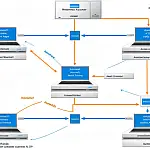PHP TutorialsPHP - the server-side programming language powering over 80% of the web - is now at version 7.1. As an interpreted (as opposed to compiled) language, PHP code is executed in run-time meaning there is no slow compilation step - changes you make in the code are visible instantly, and it is this quick feedback loop that allows for PHP's speed of use. If you're just getting started with PHP, here are some introductory materials to get you up to speed.
PHP 8 is revolutionizing web development with its powerful features and improved performance. Discover how it outshines previous versions in this comprehensive comparison.
- 29th Jan, 2024
How to improve website speed, performance and loading times by enabling output compression, either in Apache or via a PHP script.
- 22nd Dec, 2013
Import CSV to an array using PHP's fgetcsv function. The array is associative so you can access values by the column heading.
- 31st Oct, 2013
XDebug is the swiss army knife of PHP performance tuning and enables diagnostics, debugging and performance profiling for PHP applications.
- 15th Nov, 2012
This example is a common way to overlay png watermarks and stamps to photos and copyrighted images using PHP using GD library and imagecopy.
- 31st Jul, 2010
Recursively delete all files and folders from a given path and can be used anywhere you wish to delete directory recursively.
- 28th Jul, 2010
In programming languages its easy to loop between two numbers or run a foreach over items in array, but what about a loop between two dates?
- 2nd Apr, 2010
How to Embed YouTube videos in bulletin board software such as phpBB, which will not allow you to use the embed code provided by YouTube.
- 10th Dec, 2009
Various methods for sorting a multi-dimensional array in PHP depending on the version of PHP you are using or how the data is organized.
- 23rd Apr, 2009
An easy method for blocking website access for specific countries or IP ranges. Just a few lines of code and virtually no server load.
- 20th Apr, 2009









